Hello, welcome to visit Shanghai Forum

The three-day Shanghai Forum 2023 was held at the Shanghai International Convention Center in the Pudong New Area.
The 2023 Shanghai Forum was back offline over the weekend, with nearly 500 professionals and intellectuals from around the world sharing their perspectives on the theme Towards a More Inclusive Globalization: Asia's New Responsibilities.
In his keynote speech, Cui Tiankai, former Chinese ambassador to the United States, said that globalization should be based on, oriented toward, and helpful to the entire world and should be totally inclusive.
He stated that true inclusivity should be founded on equitable treatment and mutual respect among different countries and cultures, awareness of the world's diversity, respect for countries' decisions based on their unique circumstances, learning from one another, and shared prosperity.
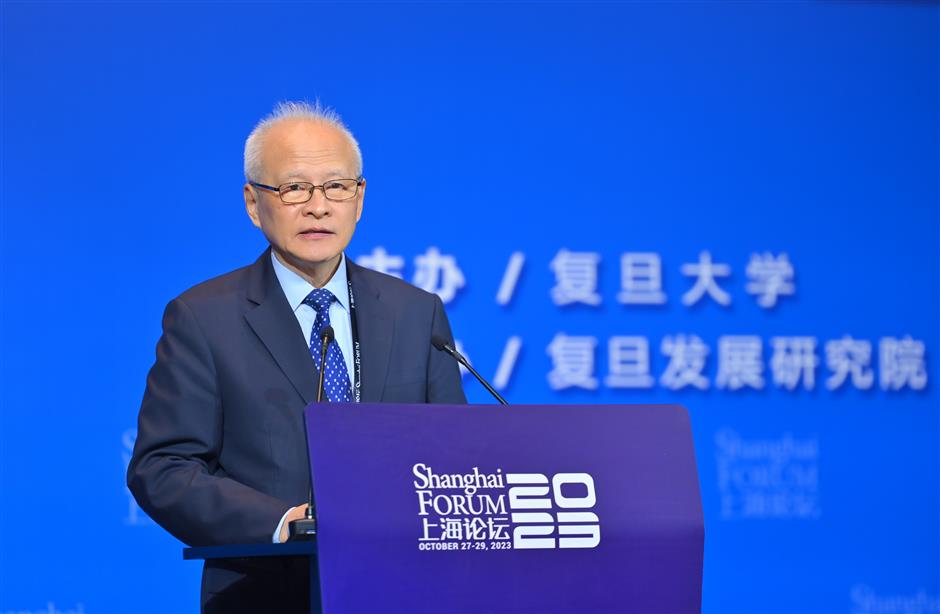
The former Chinese ambassador to the US, Cui Tiankai, said that globalization should be built on, oriented to, and helpful to the world and should be totally inclusive.
James Steinberg, former US deputy Secretary of State and dean of Johns Hopkins University's School of Advanced International Studies, said the world's development requires the participation of all countries, and the US and China should cooperate on issues of mutual interest, particularly those that require both countries to play a leading role, such as climate change, global health and energy issues. He also stated that the two countries should properly manage bilateral relations and enhance people-to-people exchanges.
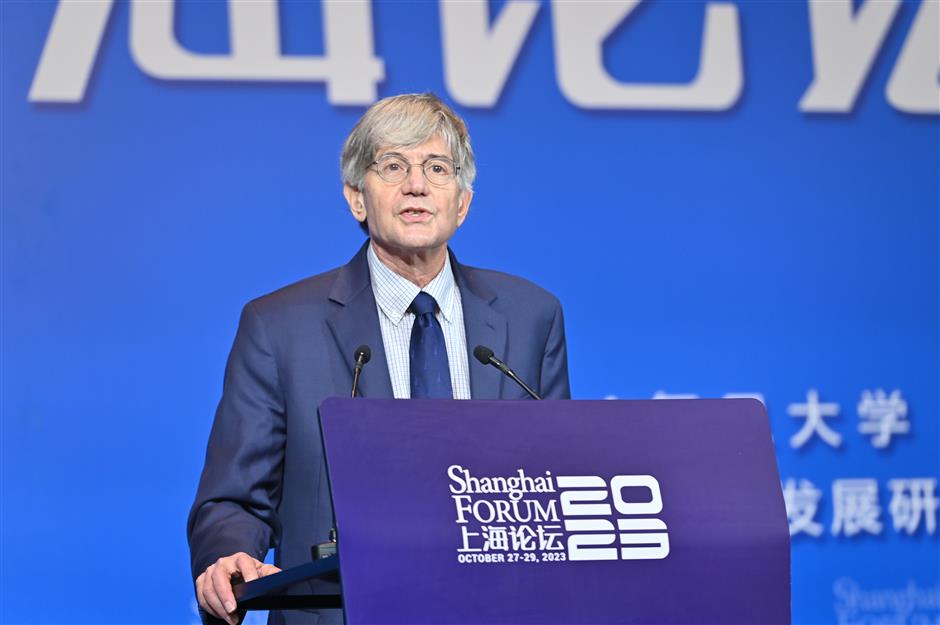
James Steinberg, former US deputy secretary of state and dean of the School of Advanced International Studies, Johns Hopkins University, believes all nations must participate in global development.
Takehiko Nakao, former president of the Asian Development Bank and chairman of the Institute at Mizuho Research & Technologies Ltd, presented some suggestions for China's economic and social development based on lessons learned from Japan's post-bubble economy.
He claimed that China has become one of the most innovative countries in the world, with a growing number of researchers and a significant growth in the total strength of scientific research. To sustain long-term economic and social stability, he urged that China pursue expansionary macroeconomic policies, establish an open trade and investment system, enhance sound foreign ties, and strengthen communication and mutual trust with other countries.
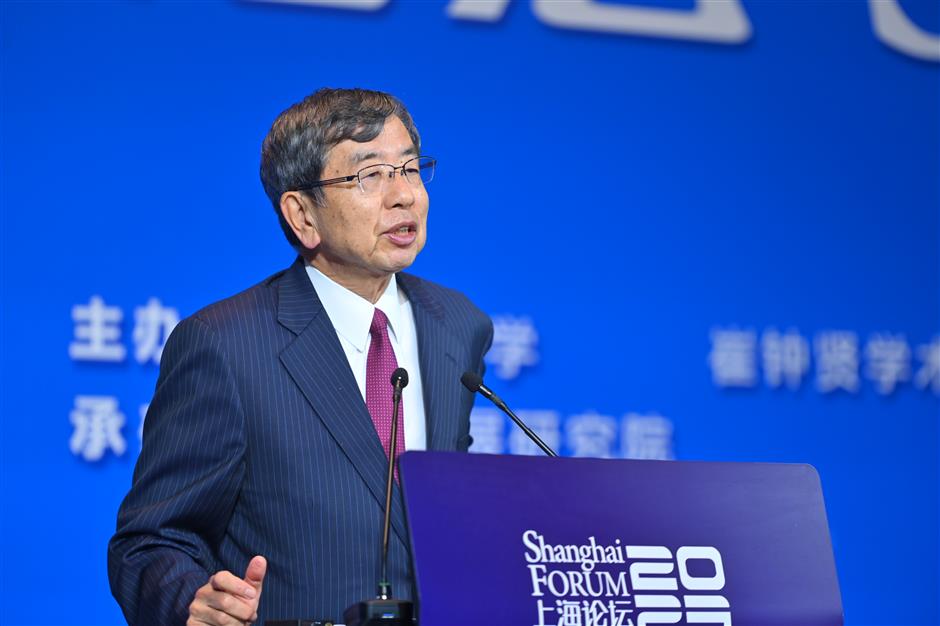
Takehiko Nakao, former president of the Asian Development Bank and chairman of the Institute at Mizuho Research & Technologies Ltd, suggested China should learn from Japan's post-bubble economy.
Amr Ezzat Salama, former Egyptian minister of higher education, scientific research and technology and secretary-general of the Association of Arab Universities, said that globalization has created opportunities for exchange and cooperation, emphasizing the importance of inclusive and sustainable development. Priority should be given to investing in R&D, building systems for knowledge sharing and technology transfer, and fostering a culture of cooperation and inclusion.
He also stated that Arab countries should embrace diversity, strengthen regional integration, increase investment in education and innovation, promote economic diversification, strengthen diplomatic and people-to-people exchanges, prioritize social development, and safeguard cultural identity.
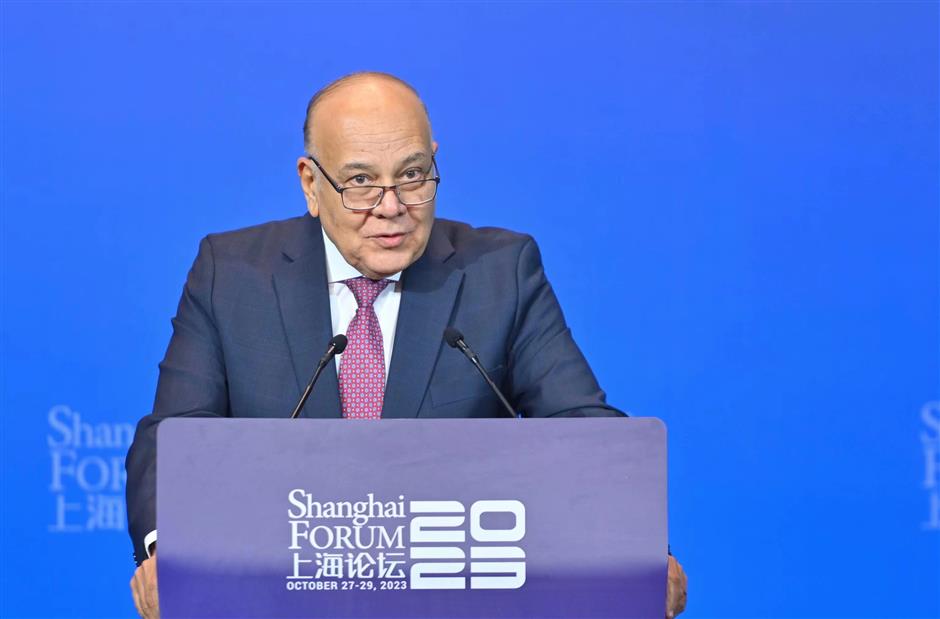
Amr Ezzat Salama, former Egyptian minister of higher education, scientific research and technology, and secretary-general of the Association of Arab Universities, highlighted the importance of inclusive and sustainable development.
In a video message, Pascal Lamy, former director-general of the World Trade Organization, said that all countries should resist the trend of economic nationalism, which, he claims, will disproportionately harm developing countries. It is especially critical to overcome the new trade barriers resulting from extraordinary development, while the EU and China should form more partnerships to solve issues such as trade, climate-related measures and digital integration.

Pascal Lamy, former director-general of the World Trade Organization, delivered a video speech.
The three-day conference also included five subforums, 18 panel discussions and six round-table conversations on a variety of issues ranging from geopolitics and international economics to climate change and low-carbon transition, global development and governance, and digital security and openness.
More than 20 reports were released during the forum.
The annual event, sponsored by Fudan University and the Korea Foundation for Advanced Studies, began in 2005 with the goal of creating a platform for communication among intellectuals from political, commercial, and academic fields, as well as offering suggestions for global governance, regional development, and other issues.
Since 2005, the forum has hosted over 10,000 speakers.
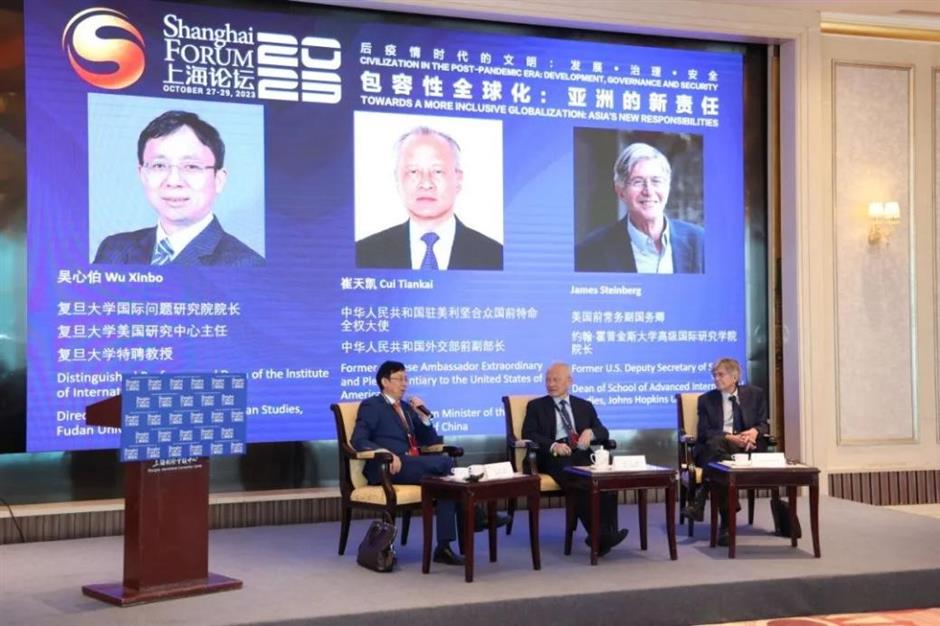
The forum included five sub-forums, 18 panel discussions and six round-table meetings.

